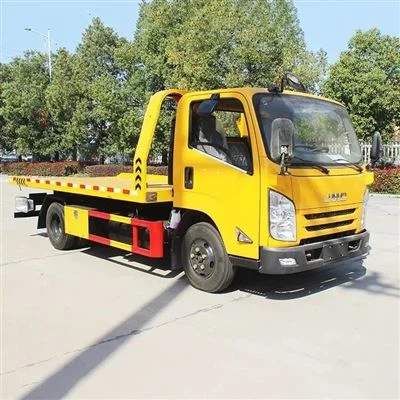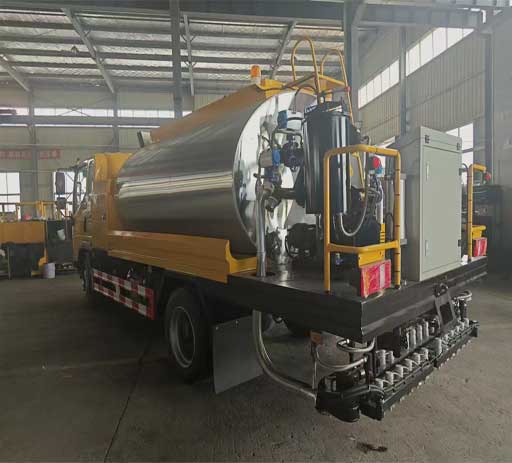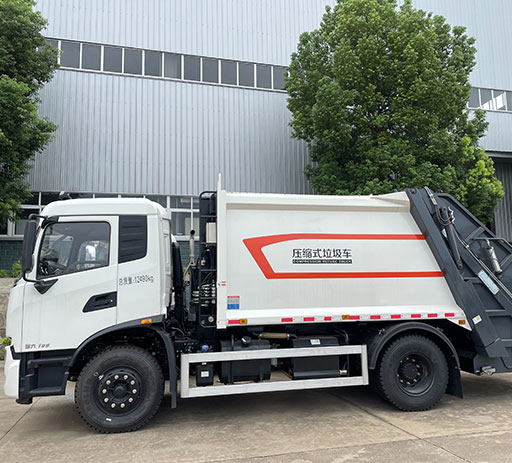Types of Cabs on Trucks: A Comprehensive Guide

In the world of trucking, the type of cab on a truck plays an important role in both functionality and comfort for drivers. Understanding the various types of cabs can help truck owners make informed decisions when purchasing a new vehicle or retrofitting an existing one. This article explores the different types of cab configurations, their advantages and disadvantages, and practical tips for selecting the right cab for specific trucking needs.
Understanding Truck Cabs
Truck cabs serve as the command center for drivers and are crucial for comfort and safety. Depending on the design, they can dramatically affect the driving experience and overall vehicle handling. Here are several types of truck cabs:

1. Day Cab
A day cab is designed primarily for short-haul transportation. It usually lacks a sleeping area, making it ideal for local deliveries where drivers return home each day.
Advantages of Day Cabs
- Lightweight construction leads to better fuel efficiency.
- Greater maneuverability in urban environments.
- Lower initial and maintenance costs.
Disadvantages of Day Cabs
- Not suitable for long-haul trips due to lack of sleeping space.
- Limited storage space for equipment and supplies.
2. Sleeper Cab
A sleeper cab includes a designated sleeping area, making it necessary for long-haul drivers. These cabs often feature amenities such as a bed, storage space, and even kitchen facilities.
Advantages of Sleeper Cabs
- Improved comfort for long-distance traveling.
- Allows drivers to rest during breaks, enhancing overall safety.
- Extra storage for tools and personal items.
Disadvantages of Sleeper Cabs
- Heavier than day cabs, which can reduce fuel efficiency.
- Higher purchase price and ongoing maintenance costs.
3. Extended Cab
Extended cabs are a hybrid between day cabs and sleeper cabs, providing a small sleeping area or storage space. They are often favored by smaller trucking companies and individual drivers.
Advantages of Extended Cabs
- Additional comfort over day cabs for multi-day trips.
- Versatile for various driving needs, including some long trips.
Disadvantages of Extended Cabs
- Limited space compared to full sleeper cabs.
- Less popular in the market, which may affect resale value.
4. Crew Cab
Crew cabs are designed to carry multiple passengers, typically featuring four full-size doors and a larger rear seating area. While more common in pickup trucks, they are also applicable in certain heavy-duty trucks.
Advantages of Crew Cabs
- Accommodates multiple drivers or team members easily.
- Useful for jobs requiring teamwork on the road.
Disadvantages of Crew Cabs
- Less space for cargo compared to standard cabs.
- Higher weight can impact fuel efficiency.
5. Flatbed Cab
Flatbed trucks often come with an open cab, allowing for versatility in loading and transporting various goods. This cab type is frequently seen in construction, landscaping, and similar industries.
Advantages of Flatbed Cabs
- Ease of loading and unloading cargo from the deck.
- Accommodates oversized objects efficiently.
Disadvantages of Flatbed Cabs
- Exposed cargo increases the risk of damage from weather or road debris.
- Potentially less comfort compared to enclosed cabs.
6. Tipper Cab
Tipper or dump trucks typically feature a cabin attached to a vehicle designed to transport materials that can be dumped on location. These are commonly used in construction and waste management.
Advantages of Tipper Cabs
- Effective for transporting loose materials like gravel or sand.
- Robust design suited for harsh working conditions.
Disadvantages of Tipper Cabs
- Limited application compared to other cab types.
- His heavier construction impacts fuel economy.
7. Box Cab
Box cabs are enclosed truck cabs designed for specific tasks, often seen in food delivery or emergency services. They provide a secure environment that protects the cargo.
Advantages of Box Cabs
- Enhanced security for sensitive or valuable cargo.
- Better weather protection than flatbed cabs.
Disadvantages of Box Cabs
- Limited visibility compared to open cabs.
- Potentially restricted weight capacity due to box design.
Considerations for Choosing a Truck Cab
When selecting a truck cab, several factors should be taken into account:
1. Purpose of the Truck

Identify the primary function of the truck. Will it be used for local delivery, long-haul shipping, or specialized tasks like construction? This will largely influence the cab type you choose.
2. Budget
Truck cabs span a wide range of budget options. Assess the initial purchase price along with long-term maintenance and operational costs to determine what best fits your financial plan.
3. Comfort and Amenities
Consider how long drivers will spend in the cab. For long-haul drivers, comfort and amenities are vital, whereas short-haul operations may prioritize simplicity.
4. Fuel Efficiency
The weight and design of the cab can impact fuel efficiency. Day cabs typically offer better fuel economy compared to heavier sleeper cabs.
5. Safety Features
Look for cabs with advanced safety features, such as collision avoidance systems, better visibility, and enhanced structural integrity, especially for cabs used in high-risk environments.
Practical Examples of Truck Cab Selections
1. A Local Delivery Business
A small delivery business may benefit from a day cab due to its lower costs and better maneuverability within city limits. This cab type allows the driver to make several trips a day without needing a sleeping area.
2. Long-Haul Trucking Company
A long-haul trucking company will likely prefer sleeper cabs. These provide drivers with the necessary amenities for long trips, ensuring they can rest comfortably while minimizing downtime.
3. Construction and Landscaping
Companies in the construction industry might select flatbed or tipper cabs. Flatbeds allow easy loading of equipment, while tippers facilitate the transport of loose materials traditionally used on job sites.
4. Emergency Services
For emergency response, box cabs provide a secure and controlled environment for sensitive medical supplies, enabling quick access in critical situations.
Maintaining Your Truck Cab
1. Regular Inspections
Conduct routine checks on the cab, focusing on signs of wear and tear. Ensure that all safety equipment is functional and replace any worn parts immediately.
2. Cleaning and Upkeep
Keeping the cab clean, both inside and outside, can extend its lifespan. Regularly wash and wax the exterior and vacuum the interior for a comfortable driving environment.
3. Addressing Mechanical Issues Promptly
If any mechanical issues arise, whether related to the engine, brakes, or electrical systems, addressing them promptly can prevent more significant problems in the future.
Frequently Asked Questions (FAQs)
1. What are the most common types of truck cabs?
The most common types include day cabs, sleeper cabs, extended cabs, crew cabs, and flatbed cabs, each catering to different trucking needs.
2. How do I choose the right cab for my business?

Consider the primary use, budget, comfort requirements, fuel efficiency, and safety features when selecting the right cab for your business.
3. Are sleeper cabs worth the investment for long-distance trucking?
Yes, sleeper cabs offer essential sleeping space and amenities that enhance driver comfort and safety during long trips, making them a worthwhile investment for long-distance trucking.
4. What maintenance tips are essential for truck cabs?
Regular inspections, cleaning, and prompt addressing of mechanical issues are critical maintenance tips that can prolong the lifespan of your truck cab.
5. Can I convert a day cab into a sleeper cab?
While it is technically possible to modify a day cab into a sleeper, it is generally more practical to purchase a dedicated sleeper cab designed for this purpose.
6. What are the advantages of a crew cab?
A crew cab provides extra seating for team members, making it ideal for jobs requiring collaboration on the road, while still offering more passenger space than traditional cabs.
